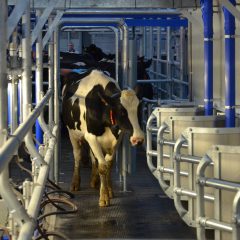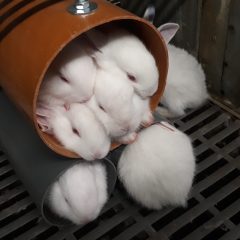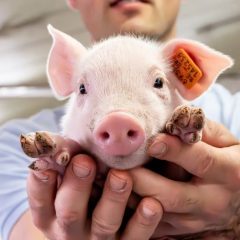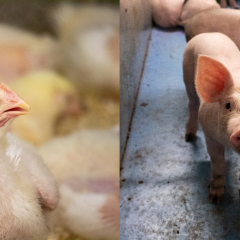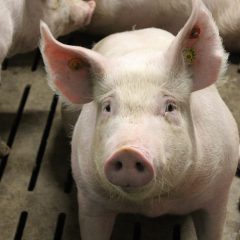Research project Heat plan for Flemish pig farming
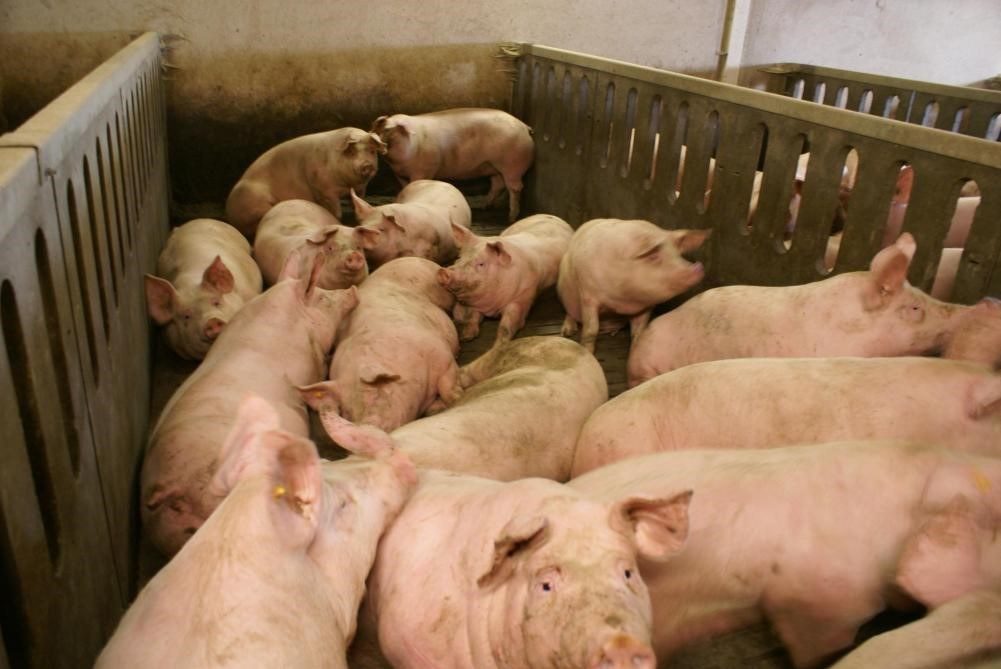
General introduction
The COOLPIGS project has produced practice-ready recommendations that enable pig farmers to develop a sustainable heat stress plan that reduces economic losses and improves animal welfare. Due to the changing climate, heat stress is a growing problem in Belgian pig farming. In several animal species, the increasing summer temperatures and the rising number of heat days lead to heat stress. Pigs are particularly susceptible to this.
Research approach
Numerous management strategies were tested on the ILVO pilot farm in both farrowing sows and older fattening pigs, including feed and water additives, modified feed formulation, water additives, lower pen stocking densities and different sire genetics. Measures that directly affect barn climate were also first evaluated at ILVO such as misting, axial fans and air intake orientation. Then the climate was monitored on 15 field farms where there were different cooling systems present or that we installed ourselves. In addition, climate conditions on the trucks during transport to the slaughterhouse was monitored and the effect of fogging in the waiting area before slaughter was evaluated.
Relevance/Valorization
The project found that management strategies such as lower pen stocking rates, modified feed or drinking water, or modified sire genetics only resulted in small differences in heat stress. Climatic interventions, such as installing additional axial fans or misting in the pens or cooling incoming air via misting or heat exchangers, did have a greater effect. These climatic interventions had a positive effect on both stall temperature and the degree of heat stress experienced by the pigs. These interventions also improved animal welfare and production results.

